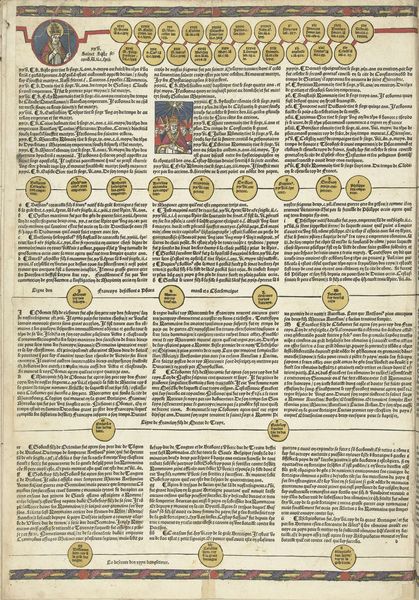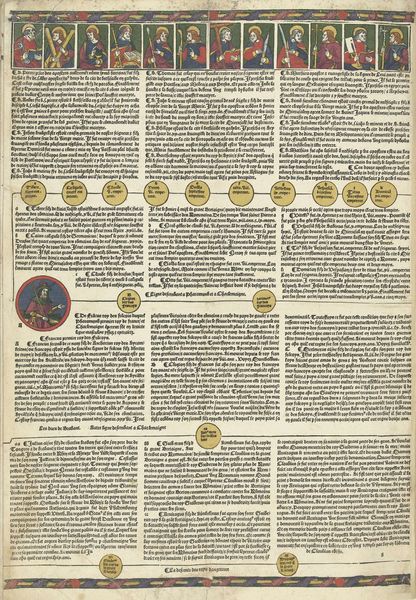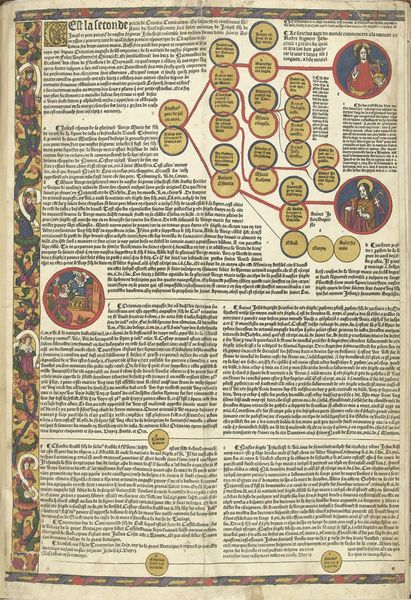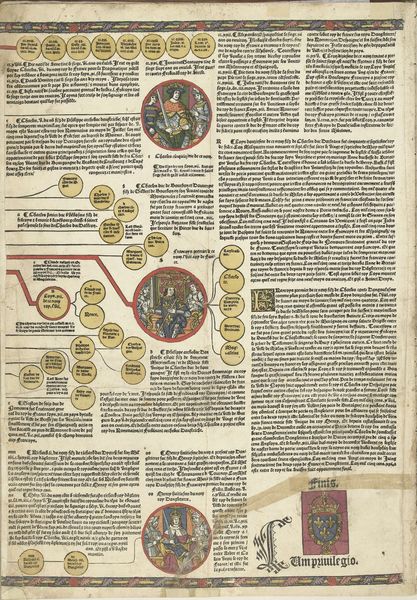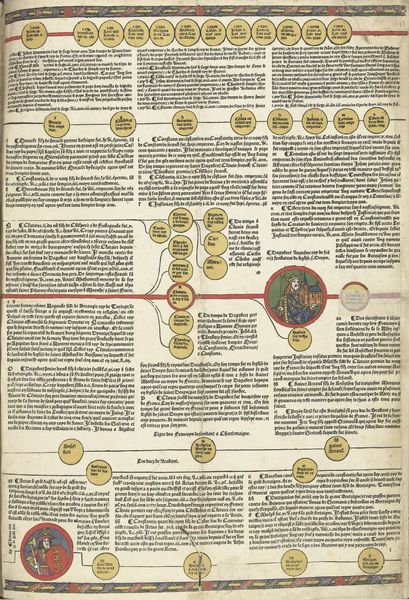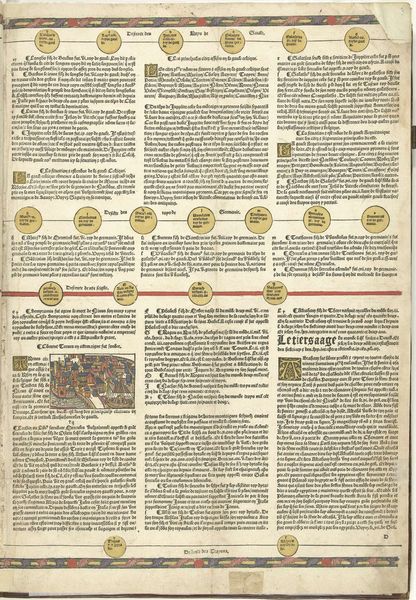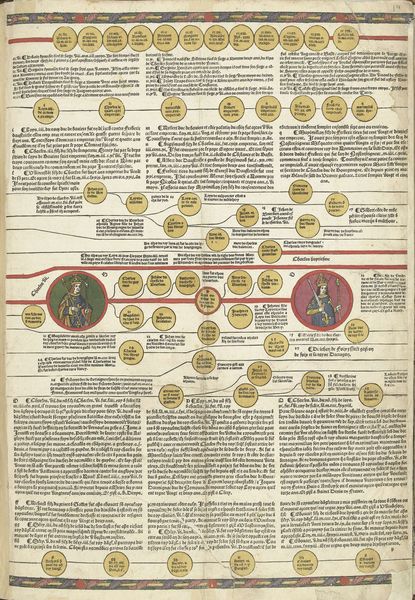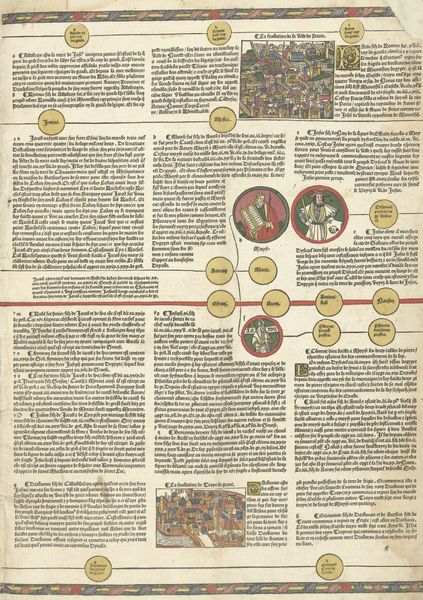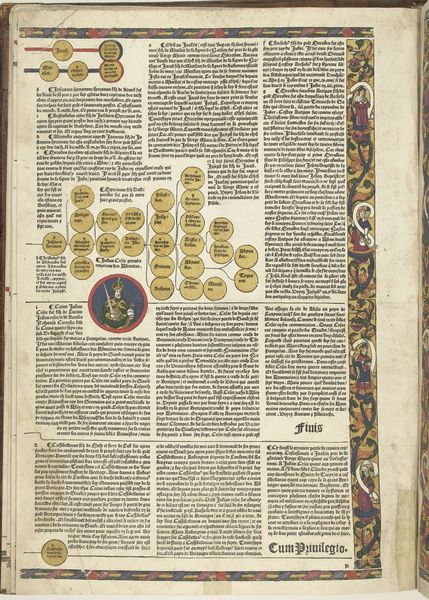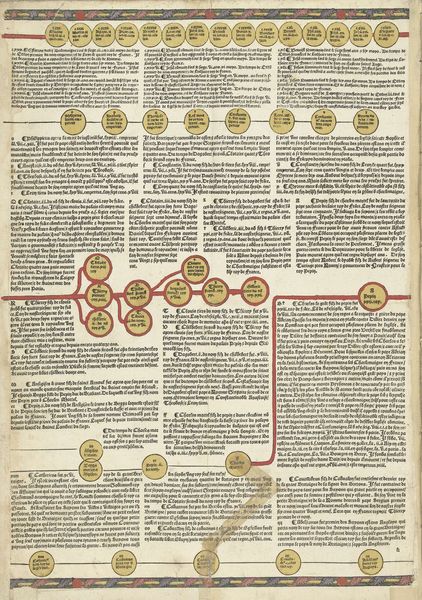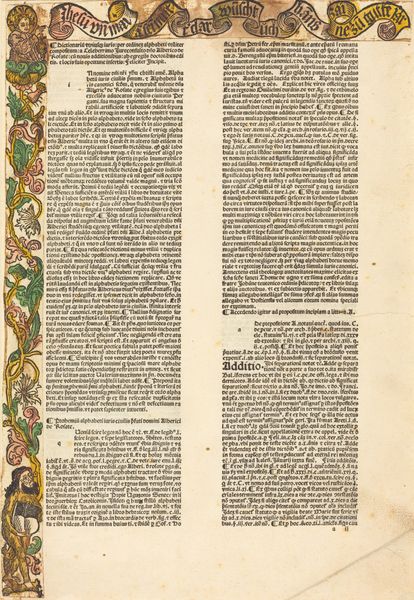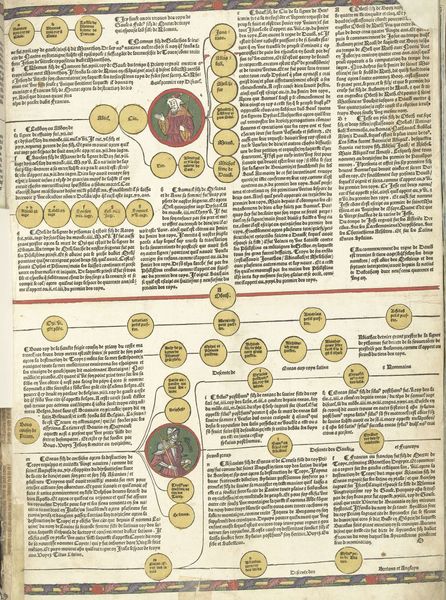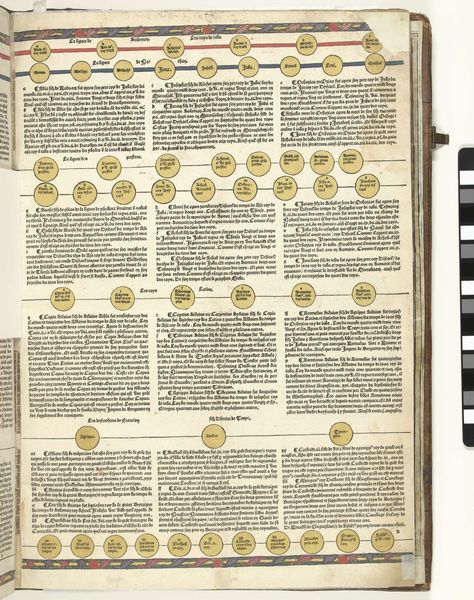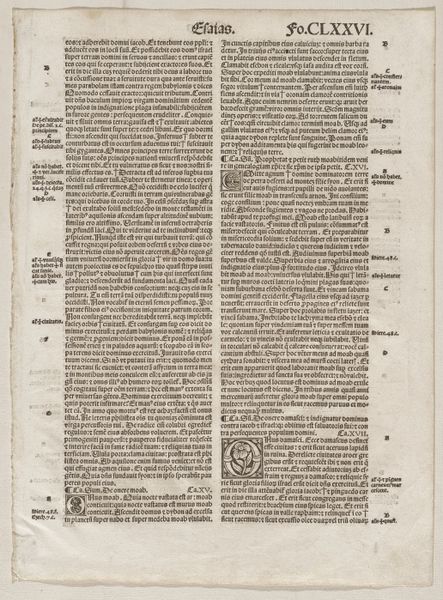
drawing, print, paper, ink, woodcut
#
drawing
#
aged paper
#
toned paper
#
medieval
#
narrative-art
# print
#
wood background
#
paper
#
11_renaissance
#
ink
#
woodcut
#
warm-toned
#
history-painting
#
golden font
#
miniature
#
historical font
Dimensions: height 553 mm, width 380 mm
Copyright: Rijks Museum: Open Domain
Editor: So this is "Cronica Cronicarum (...), blad 7 verso" by an anonymous artist, potentially from the 1520s. It's a drawing or print with ink on paper. It’s incredibly dense, like a page ripped straight out of history. How should we interpret a page so intensely focused on presenting information? Curator: This image really exemplifies the function of art in disseminating knowledge during the Renaissance. Before widespread literacy and standardized textbooks, visual aids were essential. Look at how this page marries image and text to construct a historical narrative. It isn't just about aesthetics; it's about creating a visual apparatus for understanding history and legacy. Who do you think the intended audience was for a work like this? Editor: Presumably, a wealthy, literate class, maybe even scholars or clergy, who had access to books. Did illustrations such as this shape how they viewed history and current affairs? Curator: Absolutely. These visuals would have served as memory aids and rhetorical devices, influencing how the reader constructed their own understanding of their place within the grand historical narrative. It shows us the power of visual communication in shaping historical consciousness. Notice, too, how the portraits of figures are stylized and standardized, further reinforcing established power structures. Editor: So the images, choice of figures, the layout, even the fonts, are all part of constructing a particular worldview. It really pushes you to think about what isn’t being represented. Curator: Exactly! That is why studying the cultural and institutional contexts is paramount for comprehending such historical objects. Editor: I hadn't considered the public role of art in such a direct way before. This has really expanded my view on art’s function! Curator: Mine as well. I find myself appreciating how much the past informs present understanding of art's societal role.
Comments
No comments
Be the first to comment and join the conversation on the ultimate creative platform.
